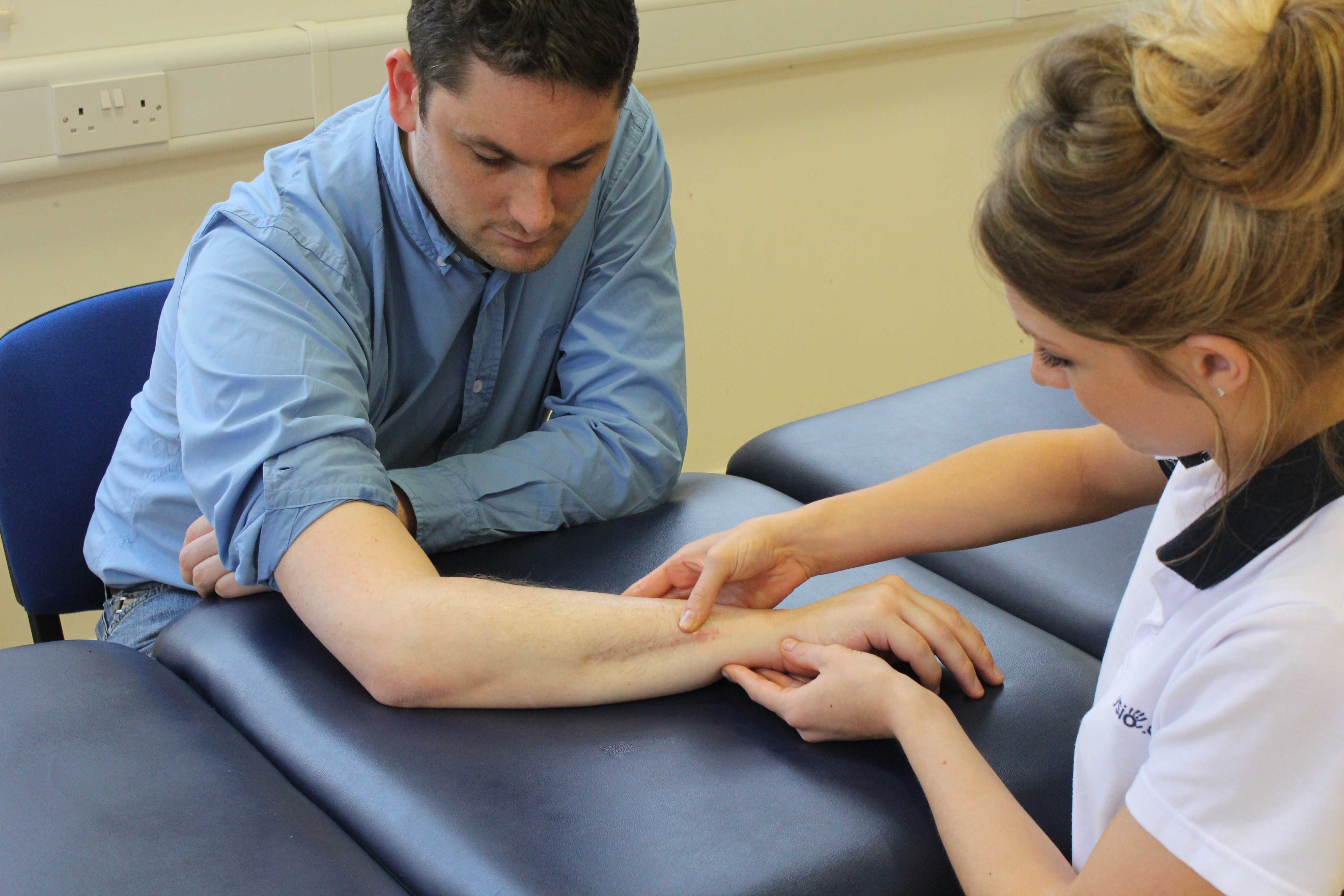What is a fracture of the distal radius and ulna?
A fracture of the distal radius and ulna is a break in the forearm bones just above the wrist. Physiotherapy is important following a fracture of the distal radius and ulna.
How does a fracture of the distal radius and ulna happen?
It is most commonly caused by a fall where you land on an outstretched hand.
 Above: Therapist examination of wrist healing following a fracture
Above: Therapist examination of wrist healing following a fractureWhat are the symptoms of a fracture of the distal radius and ulna?
The first sensation felt when the distal radius and ulna are fractured is immediate and intense pain just above the wrist joint. When you look at the back of the wrist there may be an obvious bump or deformity caused by the displacement of the bones. Other symptoms may include:
What should I do if I have a fracture of my distal radius and ulna?
A fracture of the distal radius and ulna is a serious injury which requires immediate medical attention at an accident and emergency department. To help with your pain and reduce and control any swelling, you should apply ice to the wrist. Ideally, this should be in the form of crushed ice wrapped in a moist towel or cloth applied for up to 20 minutes.
Physiotherapy for a fractured distal radius and ulna.
At the accident and emergency department they can diagnose the injury and the extent of the damage. This may require the use of an X-ray to view the bones. From this, they can provide you with a determination of how long the injury is expected to take to heal and determine the appropriate treatment. This will involve applying an arm cast and a sling or surgery to put the bones back in their original position. When a cast is applied, the joints within the cast become stiff and the muscles weaken. Although range of movement and strength may gradually return as you use your wrist, the return is very slow and often not complete. This can cause previously menial tasks, such as turning a door knob, to become very difficult.
Physiotherapy can facilitate the return of your joint range of movement and muscle strength, and ensure that upon return to exercising you are at minimal risk of further injury. Physiotherapy treatment options can include:
What shouldn’t I do if I have a fracture of my distal radius and ulna?
If you have or suspect you have fractured your distal radius and ulna, you should not use the injured arm until it has been assessed by a doctor. In addition, you should avoid any activities which may increase the blood flow to the injured area. These include hot showers, heat rubs, massage and the consumption of alcohol. These may increase bleeding and swelling around the broken ends of bone and potentially delay your recovery.
Could there be any long-term effects from a fractured distal radius and ulna?
Most fractures of the distal radius and ulna heal without complication in a matter of weeks. However, some fractures can result in longer-term effects, dependent on the severity of the injury. When the distal radius and ulna are broken, a number of nearby structures can also be injured. These include the cartilage lining the surfaces of the wrist joint, nerves, blood vessels, ligaments and tendons. Injury to these structures may delay your recovery.
To arrange a physiotherapy assessment call Physio.co.uk on 0330 088 7800 or book online.

 0330 088 7800
0330 088 7800

































